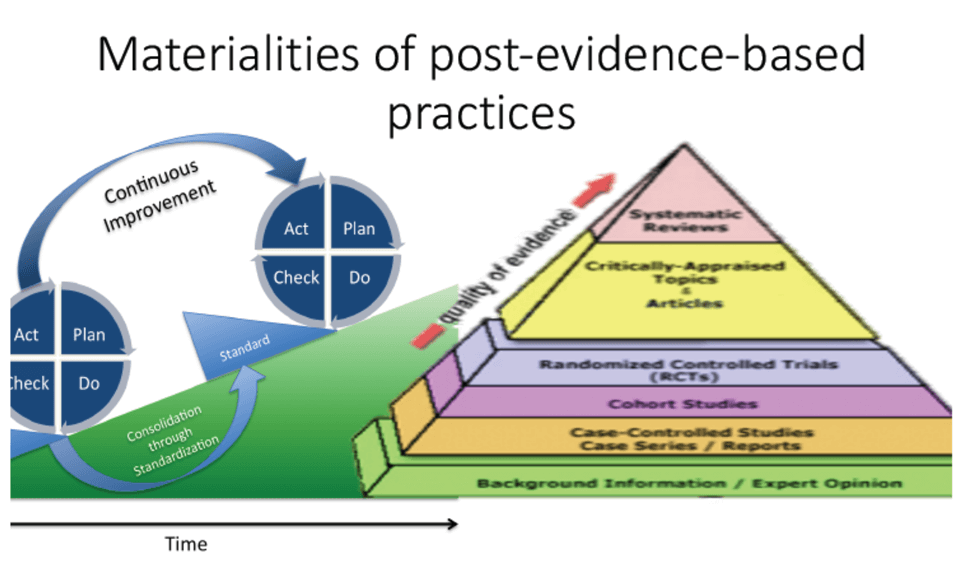Morten Sager, Department of Philosophy, Linguistics and Theory of Science; Isabella Pistone, Department for Philosophy, Linguistics and Theory of Science, University of Gothenburg; Allan Lidström, Department for Philosophy, Linguistics and Theory of Science, University of Gothenburg; Teun Zuiderent-Jerak, Athena Institute, VU Amsterdam; Thomas Schneider, Bräcke Diakoni and Jönköping University; Lena Eriksson, Department for Philosophy, Linguistics and Theory of Science, University of Gothenburg; Ingemar Bohlin, University of Gothenburg
virPrague 20: Experiments in Collaboration and Critical Participation
 Together with changes in governance related to New Public Management, evidence-based practice (EBP) has amounted to a paradigm shift in the Swedish welfare sector and elsewhere concerning the management, monitoring and measurements of operations in health care, education and social care. Critics have pointed to the de-contextualized character of aggregated knowledge of randomized controlled trials and systematic reviews and subsequent guidelines and indicators that fail to acknowledge complex localities and the temporal unfolding of practices. While it is tempting to align with such concerns, we experiment with developing a post-EBP approach through a quality improvement program within a large social care and welfare organization to create a different infrastructure for evidence-basing that enacts a dynamic, non-linear evidence-practice-entwinement. This infrastructure consists of harvesting quality improvement knowledge and turning it into a situated evidence base. It also consists of aiming to revise procurement processes in which municipalities require care organizations to prove that their work is ‘evidence based’, without having the faintest idea what that might entail in practice, nor how that helps enact good social care and welfare.
Together with changes in governance related to New Public Management, evidence-based practice (EBP) has amounted to a paradigm shift in the Swedish welfare sector and elsewhere concerning the management, monitoring and measurements of operations in health care, education and social care. Critics have pointed to the de-contextualized character of aggregated knowledge of randomized controlled trials and systematic reviews and subsequent guidelines and indicators that fail to acknowledge complex localities and the temporal unfolding of practices. While it is tempting to align with such concerns, we experiment with developing a post-EBP approach through a quality improvement program within a large social care and welfare organization to create a different infrastructure for evidence-basing that enacts a dynamic, non-linear evidence-practice-entwinement. This infrastructure consists of harvesting quality improvement knowledge and turning it into a situated evidence base. It also consists of aiming to revise procurement processes in which municipalities require care organizations to prove that their work is ‘evidence based’, without having the faintest idea what that might entail in practice, nor how that helps enact good social care and welfare.

